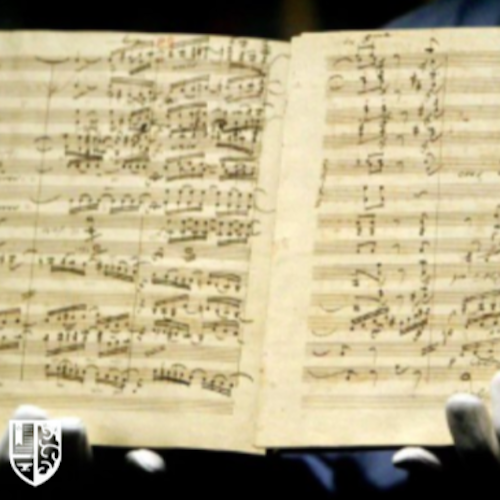
Socrates, Beethoven, and Swans
By Karl Schudt, Seminar Host
I recently re-read Phaedo, the story of the last day of Socrates’ life. The ship has returned from Delos, and he knows that he’ll be drinking poison when the sun goes down. He and his friends, of course, talk about philosophy. What sort of life should a lover of wisdom lead? How should such a person face death? Is there any reason to fear or hope?
It’s a strange discussion. Most of us, if we knew our time was limited, would seek after some bit of pleasure, or perhaps spend the time bemoaning the unfairness of it all. But not Socrates! He remains Socratic, even unto the end. “What else could one do in the time we have until sunset?” (61e)
Sunset is, in this text, both literal and figurative. Socrates will die when the sun goes down, but there’s a sunset for all of us. We all have an expiration date. What will you do in the time that you have?
For Socrates, it’s philosophy. He seeks out the same goodness, truth, and beauty that he spent his life pursuing. He does it more fervently, and encourages his friends to do so as well. He faces death bravely, or rather, joyfully, tossing off the hemlock like a toast to the gods.
I finished the dialogue and was pretty emotionally compromised. I, like Socrates’ friends, tend to get weepy when I think of the death of Socrates.
Later that day, I was engaged in my usual occupation, driving a minivan full of kids to ballet practice. We were listen to Beethoven’s 9th Symphony, the last movement. It’s a setting of a poem by Schiller, the Ode to Joy. The first line gives the flavor of the poem: “Freude, schöner Götterfunken!” Joy, beautiful spark of divinity!
It’s a glorious piece of music by the master of the symphonic form. As we listened, I explained to my children that Beethoven wrote it while totally deaf. He never heard it! You might ask yourself, “would you write such joyful music if you were totally deaf?”
Then, it hit me. The 9th Symphony is Beethoven’s Phaedo. It’s his shout to the world that life is beautiful, and that the approach of sunset doesn’t change anything. If something is good to do, it’s good to do even in the face of death. It may be better. It’s Beethoven’s swan song. Socrates says that swans sing better before death “as they rejoice that they are about to depart to join the god whose servants they are.” (85a) Schiller speaks of joy as the spark of the gods. If he’s right, then he’s always right, and joy should always be sought.
I sat in an empty car at the ballet studio listening to the last lines of the symphony, just a little bit tearful. Good things are good. If time is short, good things are better. Furthermore, the sun is always going down. It’s always time for the swans to sing.
Disclaimer
This reflection is presented for edumacational and infotainment purposes only. Taking this to be an authoritative interpretation will likely lead you to make many bad choices, corrupt your virtues, multiply your vices, and lead into the life of a tyrant. The writer was probably using a triple Platonic-Socratic-Kierkegaardian irony, and may not mean a word that he or she wrote. If, that is, the writer actually exists. This essay is probably just an emanation of the weltgeist or a bit of a spark of the eternal Heraclitean flux. Don’t take it too seriously. Join the discussion at Online Great Books.

